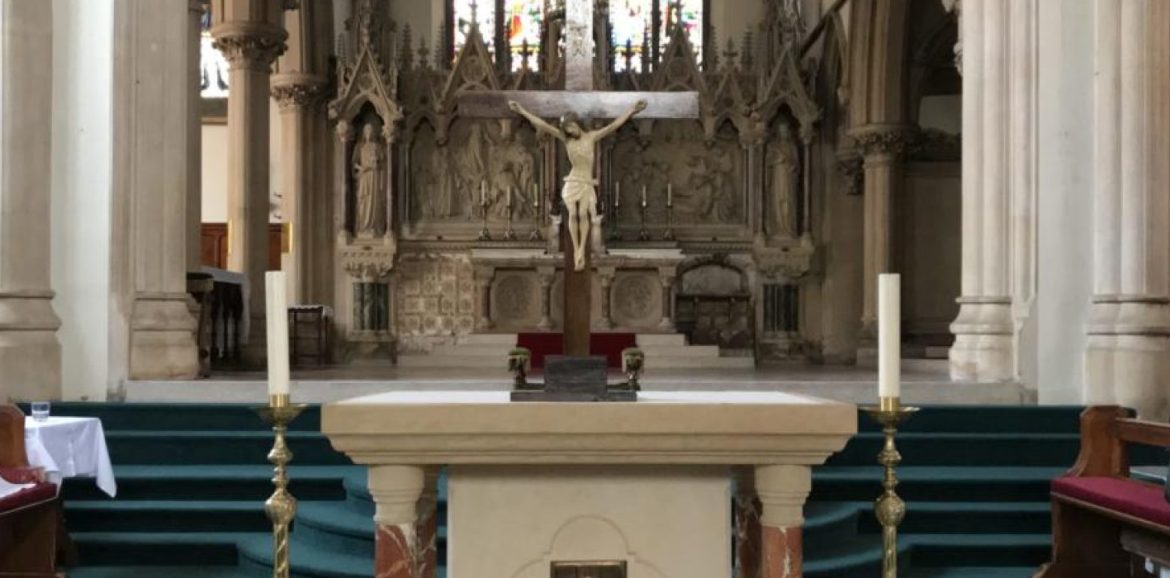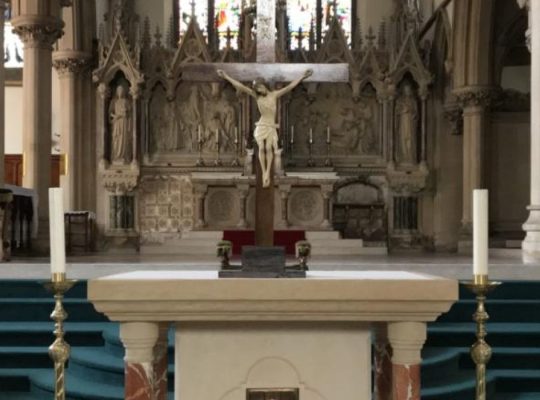Just a Thought
Today we read the fifth and last passage of those chosen for the Sundays of Year A from the First Letter of Paul to the Thessalonians. It is a new instruction on the coming of the Lord.
The unanimous evangelical tradition is perfectly clear: it is absolutely impossible to determine in advance the date of this coming, it remains God’s secret. Therefore, there is no room for uncertainty as far as Christians are concerned. They do not even dream of indulging in speculations or of listening to those who indulge in them. ‘It is not necessary to speak about delays or dates: ‘You know very well the Day of the Lord will come like a thief in the night.’
The Day of the Lord has a long biblical past. In the Old Testament, it evokes the last manifestation of God, which will put an end to the present world. First it was seen as a day of blessing, happiness, and light when God’s salvation would appear. Under the influence of prophetic literature, this day took on a twofold connotation: salvation for the just, judgement for the evil ones. In the New Testament, it is the Day of the coming of the Lord on which the history of salvation will be completed. Then Christ will hand the kingdom to his Father. The two as you can see, are not too dissimilar.
Paul insists here on the sudden character of this manifestation (Parousia) that will not have the same consequences for all. To explain this, Paul uses an image: ‘The day will come like a thief in the night.’ For certain people, it will be catastrophic because, living heedlessly—in peace and quiet, as they see it—they will be taken unawares. For others who remain watchful, this coming will hold no surprise. It will happen in the night of the world; but Christians are not in darkness, for they are ‘children of the light.’ They behave as if in full daylight; they remain at all times spiritually awake, ready to welcome the Lord as a friend they have waited for; to him, they will joyfully open the door.
In our Gospel today, we hear the parable usually called ‘the parable of the talents,’ and it is often understood as an exhortation to make good use of our gifts of nature or grace, little or great. Such a commentary is far from exhausting the content of the parable. It is not at first apparent how this parable relates to our Lord’s coming at the end of time. And yet, the Lectionary reminds us that Jesus was speaking to his disciples of his coming, the day and hour of which no-one knows. Therefore, we must be alert, so as not to be taken by surprise at this event. Today’s parable explains that we have a task to accomplish during this vigil. By the same token, it reveals the meaning and importance of the time that elapses between the Master’s departure on his journey and his return ‘after a long time.’ Christians readily understand that Jesus is speaking of himself: ‘He ascended into heaven……He will come again in glory to judge the living and the dead.’ (Creed) But he has not left the disciples, his servants with nothing to do. He has entrusted them with his goods. The parable speaks of these when it mentions talents, a monetary unit used to handle large sums. The servants, therefore, receive invaluable capital according to each one’s capacity. The Master’s trust is unheard of. It exceeds the boundaries of reason and human prudence. The Master relies on his servants’ sense of responsibility. Obviously, only the Lord can act in this manner with his servants.
The parable does not say how the first two servants managed to invest profitablytheir master’s capital. He congratulates them in the same terms and invites them into his joy; he praises them for having been faithful ‘in small matters’ and promises them ‘great responsibilities.’ When one realizes that the allotted capital—’small matters’— was already enormous, one understands that the reward—’great responsibilities’— will be without measure. In truth, we are no longer dealing with a human being who demands accounts from others, but with God, who bestows his infinite riches upon his servants who have faithfully administered the portion of the capital allotted to them.
The meaning and the extent of this parable are made more explicit by the appearance of the third servant and by the terrible punishment inflicted upon him: he is thrown ‘into the darkness outside, where there will be wailing and grinding of teeth,’ that is, into the place where the impious go. His conduct has been a truly mortal sin that deprives him forever from sharing in his master’s joy. But what is this sin that is punished by such rejection?
The narrative says that he buried his master’s money in the ground in order to give it back intact when the master returned. Contrary to his companions, he did not understand that he had to profitably invest this fortune; he lacked initiative. We would understand that his disappointed master ceased to trust him. But here is the crux, we are dealing with a parable and not with a story of common occurrence among human beings; we are dealing with the coming of the Lord after a protracted absence and not with the return of a wealthy man after a long journey. We could rightly reproach such a man with his harshness and, even more, his injustice. What right has anyone to require from servants more than what was entrusted to them and, worse, what right has anyone to punish such servants? Everything changes when we are speaking of God and his servants. If we consider ourselves bound to God by a contract in human terms, if we regard religion as the strict fulfilling of a certain number of duties taken on through servile fear, we misunderstand who God is, we insult him, and we declare ourselves unworthy of entering his joy.
‘Jesus was speaking to his disciples of his coming.’ On that day we all will be judged on what we shall have done, as Matthew’s Gospel does not stop repeating in various ways. The time of the Lord’s absence is, for disciples, the time of active waiting.
It seems, God has no use for those who are timorous, devoid of initiative, and idle when the master is not present to watch them and stimulate them with carrot and stick. But wants his servants to behave in a responsible manner, to be enterprising and apply themselves to what they are doing. The master must be able to entrust his goods to them; they will know how to invest them profitably. He does not ask them to do great things but to assiduously discharge the tasks assigned to them. Grace, that inestimable good, is not something inert that we, for fear of losing it, can bury in the earth or hide under the mattress. If we have acted thus, let us hasten to take it out of our hiding place. Let us make the most of the delay granted to us—we do not know of how long— to make it fruitful with God’s help.
The biblical readings for the last two weeks direct our eyes toward the coming of the Lord, the end and fulfilment of the whole history of salvation. The intent is not to make us evade the present but, on the contrary, to help us to fully live it in the light of its completion.
The Lord will come on the day and at the hour that no-one knows, except the Father. Far from overwhelming us, disheartening us or, on the contrary, throwing us into careless living as a means exorcising our fears, this uncertainty stimulates our hope and revives our fervour in the efficient service of God.
The Lord will come. This certitude is at the heart of the liturgy and animates it. Every time we celebrate the holy mysteries, we have a twofold experience: that of the presence of the Lord among us through signs, especially the Eucharist, and that of longing for another presence—a final one—that will fulfil our expectation.
Today is the time of lamps patiently replenished with oil and of fervent diligence in daily tasks.
Tomorrow will be the entrance into the banquet hall in the joy of the Lord!


